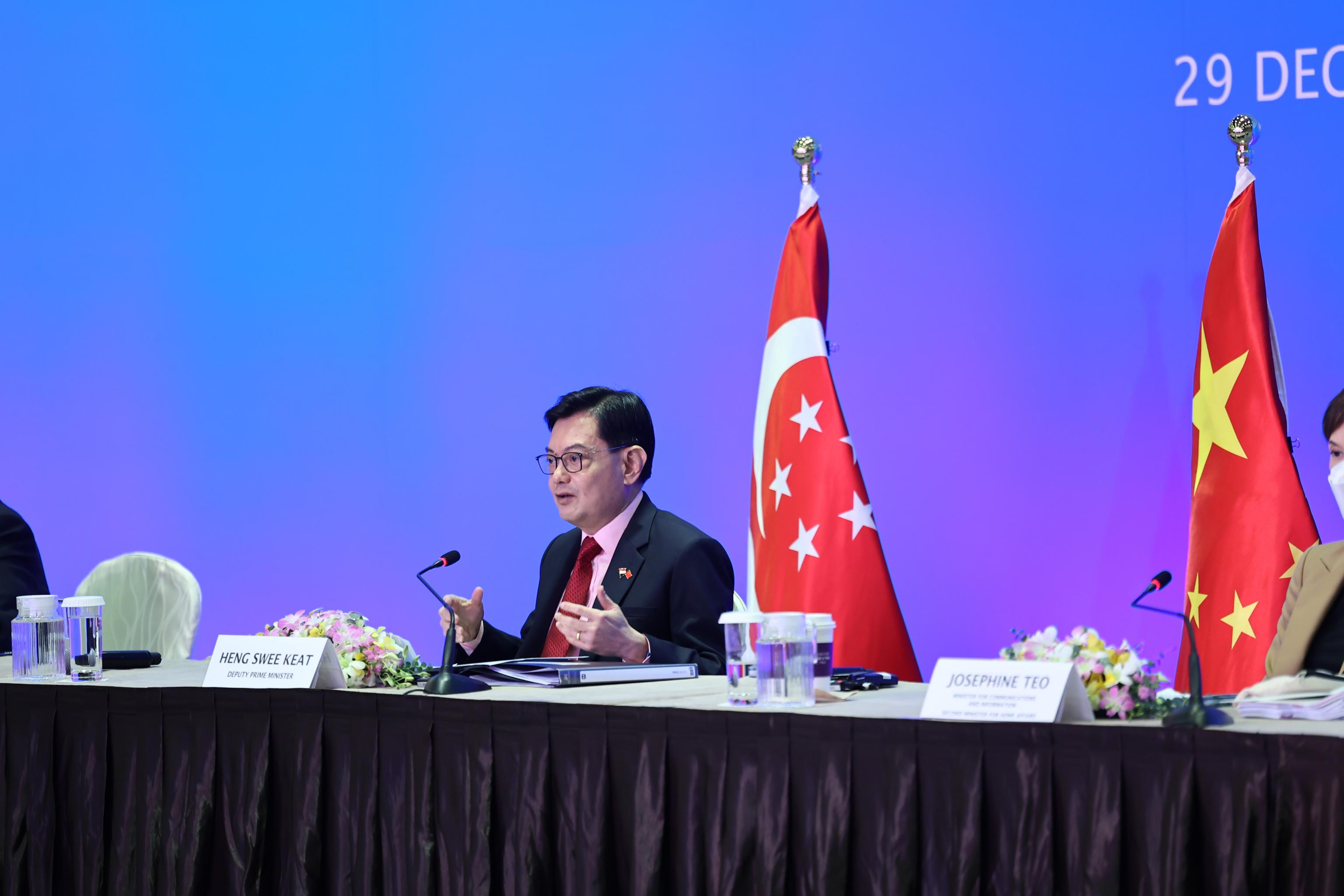Many opportunities for S'pore firms as China's economy grows: DPM Heng
Sign up now: Get ST's newsletters delivered to your inbox

DPM Heng Swee Keat at the 17th Joint Council for Bilateral Cooperation between Singapore and China.
PHOTO: LIANHE ZAOBAO
Follow topic:
BEIJING - As China shifts to a new economic development model, Singapore wants a part in this new paradigm, said Deputy Prime Minister Heng Swee Keat and other ministers after an annual bilateral meeting with China on Wednesday (Dec 29).
China's continental-sized economy needs both international and domestic engines to power its long-term sustainable growth, said Mr Heng of China's "dual circulation" strategy, which emphasises internal consumption but does not give up on the external market.
And as its economy continues to develop, more Chinese companies will be seeking a market outside of China as well.
"I think Singapore can be a very good base for Chinese companies to explore their regionalisation and internationalisation," he told Singapore reporters on the outcomes of the Joint Council for Bilateral Cooperation meeting.
With the rapid growth of digital economies and China's emphasis on green and sustainable economic development, there will be many opportunities for Singapore companies too, said Mr Heng.
Singapore is also observing China's common prosperity drive to narrow the widening income and wealth gap.
"Countries all around the world are grappling with the right balance between the emphasis on capital efficiency and emphasis on providing jobs and proper remuneration for the workers," he said.
"I think a good balance of that growth and distribution, and equitable growth, will be a valuable part and is something which we can all learn together."
Foreign Minister Vivian Balakrishnan described bilateral ties as "excellent", saying Singapore's value to China is built on being relevant, keeping updated and trust.
"Singapore is a tiny city-state. And frankly, China will continue to zoom ahead, with or without Singapore. It is our job to be relevant to them," he said at the briefing.
Singapore has tried to plug into every stage of China's development - from building an industrial park in Suzhou in 1994 as part of China's opening up, developing an eco-city in Tianjin when green cities became a priority, to building a land and sea trade corridor in Chongqing when the Belt and Road Initiative took off.
As the world moves towards connecting digitally with borderless flows around data, finance and intellectual property, "there will be no shortage of areas where we can, if we are smart about it, find ways to be relevant to China", said Dr Balakrishnan.
The "very big elephant in the room", he said, is China's ties with the United States.
"There is going to be certainly an uncomfortable period of adjustment in the relationship... There will be some elements of bifurcation, some unravelling, but I don't see it possible for a complete rupture of the economic interdependence between the two superpowers," he added.
How Singapore can fit in is as an "honest broker" since it understands Western economic systems, and has cultural, linguistic and historical affinity with China. It also understands that there is no one way to organise a society, Dr Balakrishnan added.
Singapore can offer "to be useful, to be an interface, to be a portal, where we can add value to these interactions, although these interactions will become more complicated in the years to come."

